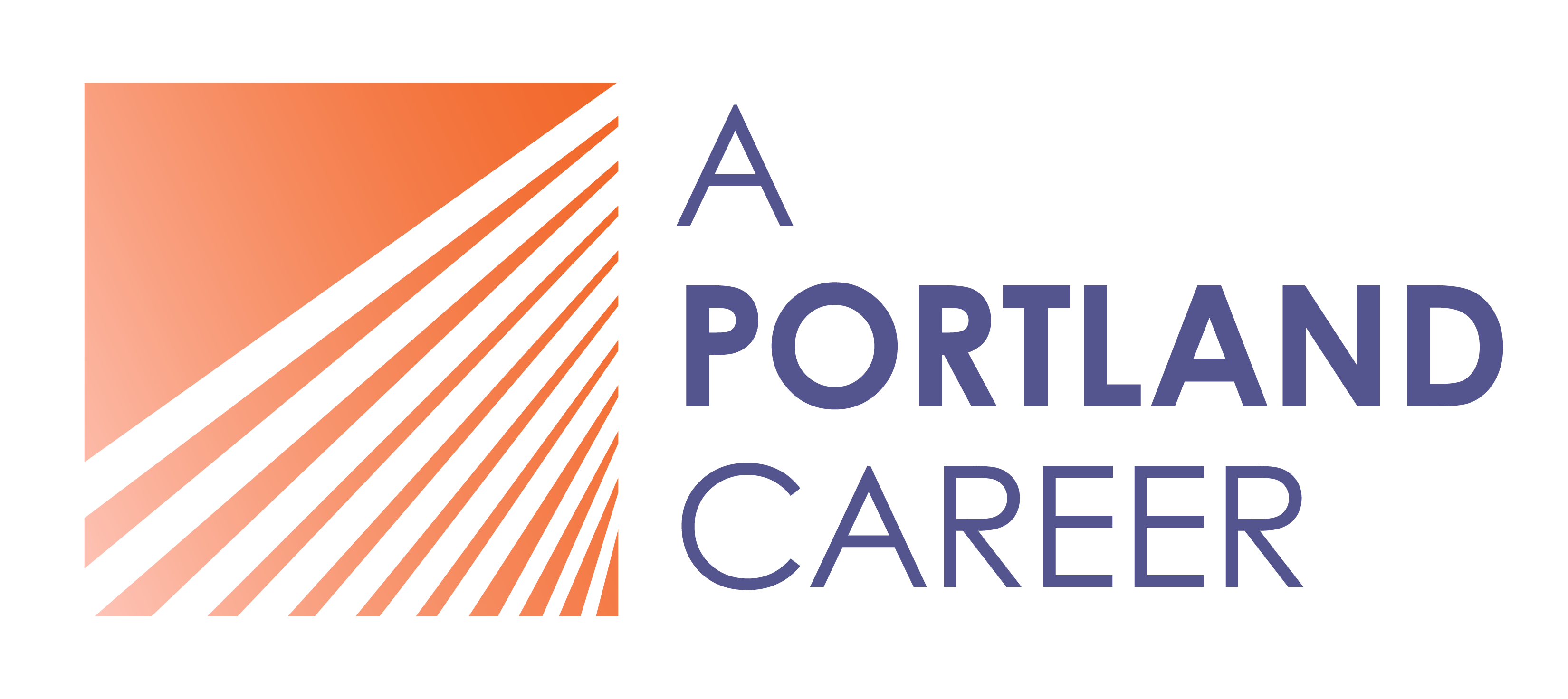Self-employment isn’t for everyone. Take our assessment to find out if you can thrive being in business on your own.
How do you know when and IF quitting your job is best for you? Here are steps to take before quitting, how to quit, resources, and stories from those who made it happen.
Should I Quit My Full-Time Job to Freelance?
By Andi Bean, and edited by Dan Hahn, M.S.
Thinking of quitting your job? Schedule a call and we’ll discuss your situation and how we can help

Traditional full-time work isn’t the right fit for everyone. Chances are, if you’re considering freelancing, you already know some reasons for moving away from a typical, long term 9-5 job. What you may not know is if the benefits of freelancing outweigh the security of a traditional job for you.
There’s plenty of evidence online and on social media of people living fantastic, wealthy lives on a freelancer’s salary, but very little information on what it’s actually like to work exclusively freelance jobs. Let’s take a look at some factors you should consider before mapping out a game plan for that big career change. Then we’ll talk to a couple of people who made the jump (to varying degrees). First though, let’s walk you through how to know when and if to quit your job!
Home → Helpful Articles → Self-Employment → Should I Quit My Full-Time Job to Freelance?
If you like this post, we’ve got another helpful article for you entrepreneurs out there: Should You Be Self-Employed?
If you’re stuck in your decision making about whether to strike out on your own, get in touch with us. We’ll work with you to realize your strengths and evaluate your potential paths.

How to know when and IF you should quit your full-time job to freelance
If there’s one thing workers learned during quarantine, it’s that a lot of jobs can be done from home with a lot more autonomy than we’re accustomed to enjoying. Many companies are pushing their employees to return to their offices as vaccines are widely distributed and new infections are plateauing or even decreasing. But if you’re one of many who found you could be just as productive (if not more so) from home, freelancing might be for you. So how do you know you should quit your current job and swan dive into freelancing full time?
You need a work/life balance that your job cannot provide
Whether you’re a hardcore introvert or just someone who hates meetings that could be summed up in an email, modern day work culture can feel very counterproductive. Add to that that many of us have long commutes, family commitments, and spend considerable amounts of time and money just to be presentable and “professional” enough for our workplaces and you have a compromised work/life balance that isn’t sustainable.
Freelancing offers quite a bit of freedom from most of that, but there are caveats to everything. For instance, as a freelancer you set your own dress code. However, your freelance client might expect a certain level of dress depending on what you do, especially if it’s your first time. Remember, without a company backing you up and dictating your interactions, you are your own Marketing and PR. You need to think about the “brand” that you represent, whether that’s your social media persona, your carefully tailored website, or how you conduct yourself in client meetings.
You can set your own schedule and manage your own time how you want, but that means you have to be your own boss and do exactly that. Missed deadlines are no one’s fault but your own (unless of course the client isn’t holding up their end).
You no longer have to attend mandatory work socials but you might miss the camaraderie of your coworkers. Not that small talk by the water cooler is a highlight of anyone’s day, but sometimes work friends become real friends and it might be harder to do that from the solitude of your home studio.
If the realities of freelance life and work aren’t deal breakers for you, or you don’t mind dealing with the discomfort temporarily, then keep reading.
You have a strong career-related network outside of your employer’s contacts
Do you have clients hiring you for you and not because of the company you work for? Have you made contacts outside of your immediate sphere? Are you a part of the ⅓ Americans who has a side hustle? If so (and that side hustle is a marketable skill) then you’re ahead of the game.
It’s a good idea (again, depending on your field) to have a sizable social media following for your particular skill before leaving the relative safety of full time employment. Basically, just make sure your parachute works before you take the leap into launching your freelance business.
You have the passion
If you’re not passionate about what you do, freelancing is the fastest way to burn out. You need to be self-motivated, disciplined, and willing to make sacrifices.
“Creative writing” and “financially stable” are two terms that are rarely used in the same sentence, but freelance copywriting can pay the bills. Because of this, some wannabe writers pursue it as freelancers thinking they can make tons of money doing something adjacent to their dreams and have time for artistic pursuits. It works out for some, but for others, freelance writing is an unending nightmare of procrastination, missed deadlines, and burned bridges because every gig feels like pulling teeth.
There are a lot of avenues to pursue as a freelance career. Just make sure it’s something you want to do; not just something that pays.

Reasons NOT to quit your full-time job to freelance
Lack of savings
If you don’t have enough money in savings to live without income for the next three months (or more), you should probably continue to grow your side hustle for a little longer. Even if clients were coming to you because of you and not your company, you may find that that’s not enough to sustain you, especially considering that there might be overhead you didn’t plan for. Working from home might save you money in the long run, but if you were dependent on equipment, services, and/or supplies that were previously provided by your employer, you need to work that into your budget. You will likely also need to pay for your own health insurance (or forgo it altogether, like many new freelancers). Many first-time freelancers also undercharge for their services. Do your research and charge an hourly rate you deserve.
Lack of benefits
A very valid critique of freelance/contract work is that it gets companies off the hook when it comes to providing benefits for its employees. Some companies will advertise for “contract” positions that do not technically meet the requirements ostensibly for this very reason. According to the Legal Dictionary at Law.com, “An independent contractor must be able to determine when and where work is performed, be able to work for others, provide own equipment and other factors which are indicative of true independence.” If a contract job does not meet those criteria or allow you to set your own rate, that is not a contract job. It’s just a bad job.
Moreover, if you take on such a position, you don’t get health insurance, paid time off, sick leave, maternity or paternity, and you’re responsible for invoicing since you’re self-employed.
The money takes a while to flow
If you’re wanting to pursue working full time as a freelancer, just know that (especially in the beginning) you will likely be working overtime. You have to pay your dues in the beginning, i.e. chasing clients, crafting a website, ramping up your social media, creating a brand, building a home office, etc. A lot of that is unpaid labor. That’s not to say that established freelancers can’t take time off or that the freedom of being able to set your own schedule doesn’t outweigh the growing pains, but it’s something to be prepared for.
Burdensome tax tracking
Freelancers and contractors are taxed very differently from traditional employees. As a freelancer, you are both employee and business owner, so you will be taxed the normal income tax, plus an additional self-employment tax of 15.3%. This extra tax covers medicaid and social security that would normally come out of your paycheck. A portion of that would be covered by your employer if you worked a traditional job, but as a freelancer it’s your responsibility to pay that as well as your responsibility to charge a fee that will allow you to pay it. Deductions may help offset all this, but it’s very important to be able to keep track of all your expenses well, or have the means to hire a bookkeeper.
Get rich quick schemes abound
Finally, there are plenty of get rich quick schemes/MLM’s on social media that masquerade as legitimate ways to freelance. If something sounds like a scam, a quick Google search will usually prove it is. Seek out the perspectives of those not affiliated with the organization who may be able to provide a more complete view of how they operate.
Note: If you’re vacillating on whether to quit your job or not, connect with us for a chat. We can set up a custom decision table for you, develop criteria for your choice and help your objectively evaluate your options.

Steps to take before quitting your job
So you’re passionate about what you do, you have the self-discipline to manage your time effectively, you have a great network, and, for you, the perks of freelancing far outweigh the security of traditional employment. Time to set up shop at home! Before you invest in 500 business cards for your fledgling enterprise, let’s strategize how to gracefully leave your job. With the right steps, your previous employer might even be your first client.
Continue to grow your network
Before you hand your boss that resignation letter, it’s time to expand your network. Maybe you worked for the same company for a couple years and have a few people on your proverbial rolodex from your job, school, and a couple other tangential contacts here and there. Be smart (and read the fine print of any Non-Compete Agreement closely), but start talking about what you do and what you’re about to do to anyone and everyone, not just those in your closer inner-circle.
The more people who know about what you’re able to do, the higher your chances of netting paying work.
Dive into social media
Social media can be a scary beast to conquer but there are plenty of resources to learn do’s and don’ts out there to get you started. Depending on your specific field, it may be more important to focus on LinkedIn, Instagram, Clubhouse, or even TikTok rather than Facebook.
If you’re working in a particularly niche market, you’ll need to make sure people on the other side of the country (and globe) can find you and hire you. The more niche your work is, the less demand you’re gonna have for it locally. Look into joining local Facebook Groups, Meetups and Subreddits devoted to your work to create networking balance locally and beyond.
Seek out in-person mixers. Score (https://www.score.org/) is a great resource for finding both a mentor and workshops where you can meet others in your field or adjacent fields. Their mission is to help small businesses and as a freelancer, you will be your very own small business.

How to quit your job like a pro
While you’re branching out into social media and talking to mutuals about your planned business ventures, it’s good to have a solid plan in mind for how to broach the topic with your current employer. Some companies will encourage their employees to pursue other opportunities; others are like jealous ex-lovers. Let’s talk about how to handle either situation:
Tell your boss first
Set up a meeting with your immediate superior and give them your two weeks notice in writing. Be gracious and prepared to discuss how you would like to do everything in your power to make this transition as seamless as possible. Offer to help train your replacement and thank them for their role in your career journey. This maintains a good working relationship for the remainder of your tenure and also positions you to become a potential freelance hire if they can’t find someone as good as you to replace you in time.
That is if you feel inclined to talk about why you’re quitting. You’re under no obligation to do so, especially if you feel that the first scenario (being asked to leave without notice) might occur. Non-compete agreements were already mentioned, but it’s a good thing to keep in mind. If you have any concerns it’s best to consult a lawyer now than be sorry later (though non-compete agreements are notoriously hard to enforce because courts don’t want to restrict a workers ability to find employment in their field).
Stay cool with your coworkers
If you are going to stay for the usual two weeks, this is not the time to kick back and pull in one final paycheck. Do your usual good work and maintain cordial relationships with your coworkers. You never know who your coworkers might know and they could get you referrals. Cards, thoughtful gifts, or taking people out for lunch are a great way to say goodbye for now.
Be tactful in your exit interview and on Glassdoor
You can be honest; just don’t be too specific and don’t mention names. This is especially the case in small offices and/or small industries. Gossip gets around, even from exit interviews which are supposed to be confidential but oftentimes are not. You don’t want to burn bridges after spending all that time being squeaky clean. Even when it’s on Glassdoor, if you name drop or talk about specific instances, you could be identifiable and ruffle the wrong feathers. Keep your rants to your friends.
Don’t wait for the perfect time
If you really want to freelance, delaying the inevitable too long is a bad idea. Once you have the basics as outlined above, you’re ready to at least start working with clients. Don’t sweat too much about things like having the perfect website (have a website that’s user friendly and can be searched), constructing an instagram ready home studio (no one has one in real life), or worry too much about leaving at just the right time for your employer’s sake (if you’re really good at your job, there will never be a good time for them to lose you). Wait until you have the necessary balls in your court and take a shot. It’s never too late to start a new career, but it is easier to do before being in a nursing home.

Stories from actual freelancers who quit their job and made it happen
J decided to become a freelance graphic designer after “many years of retail, corporate, and small business work with systems and environments riddled with red flags.” She needed a better work/life balance with a culture that was compatible with her ideals. For J, the hard part of the decision to be a full time freelancer was lack of self confidence:
The decision to leave her full time job was not her own, but the decision to not go back was:
When it came to planning her new business, she did her due diligence:
And then there’s E, who moonlights as a belly dancer part-time but still has a full time day job (at least for now):

Freelancing resources
If you made it this far and still want to pursue working as freelancer full time or just kick your side hustle into high gear, here are a couple sites to check out to help get you started:
- Upwork.com is the largest player—a behemoth—as a result of a merger between two competitors. The categories of jobs they offer include writing, design & creative, engineering & architecture.
- Guru.com lets you easily showcase your past work experience and offers a daily job-matching feature to make sure you don’t miss out on any good opportunities. The Guru Work Room lets you easily manage all your work.
- Craigslist.com was started as a job site for creatives in San Francisco. While it has fallen behind as a general job site, it has stayed competitive for creative freelance projects, although you have to sift through some low-paying options to find the solid opportunities.
- 99designs.com allows you to submit designs (like a design contest) to win potential clients in creative areas like book design, branding, logos, and packaging.
Final thoughts on quitting your job to freelance
Freelancing full time isn’t for everyone and maybe it’s not the right move for you…yet. Finding the right path to follow is half the battle though, so if you have something you’re passionate about, that motivates you, and that has an audience, you just need to do the planning. That means making a careful budget that accounts for all your expenses, including health insurance and taxes.
Don’t undercharge. The sad reality of freelance work is that a client can drop you at any given time for no reason, so you want to be sure you have a little cushion to land on. That might mean staying on at your current job until you can build up your savings.
Once you’re ready to leave, take the upper road and be professional on your way out. If you have petty grievances you want to air about your former employer or coworkers, talk to your friends or get a therapist. Your former workmates are a great networking resource, so don’t discount them just because you won’t see them on morning coffee runs anymore.
It’s never too late to be an entrepreneur!
Key takeaways
- Be honest with yourself, your skills and choose your new self-employment pathway
- Learn how to master your time and stick to a consistent schedule
- Never stop growing your network
- Don’t burn any bridges along the way
- Your autonomy, freedom, financial independence, and pride are waiting for you to get your ass in gear. Seize the day!


